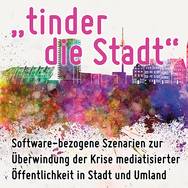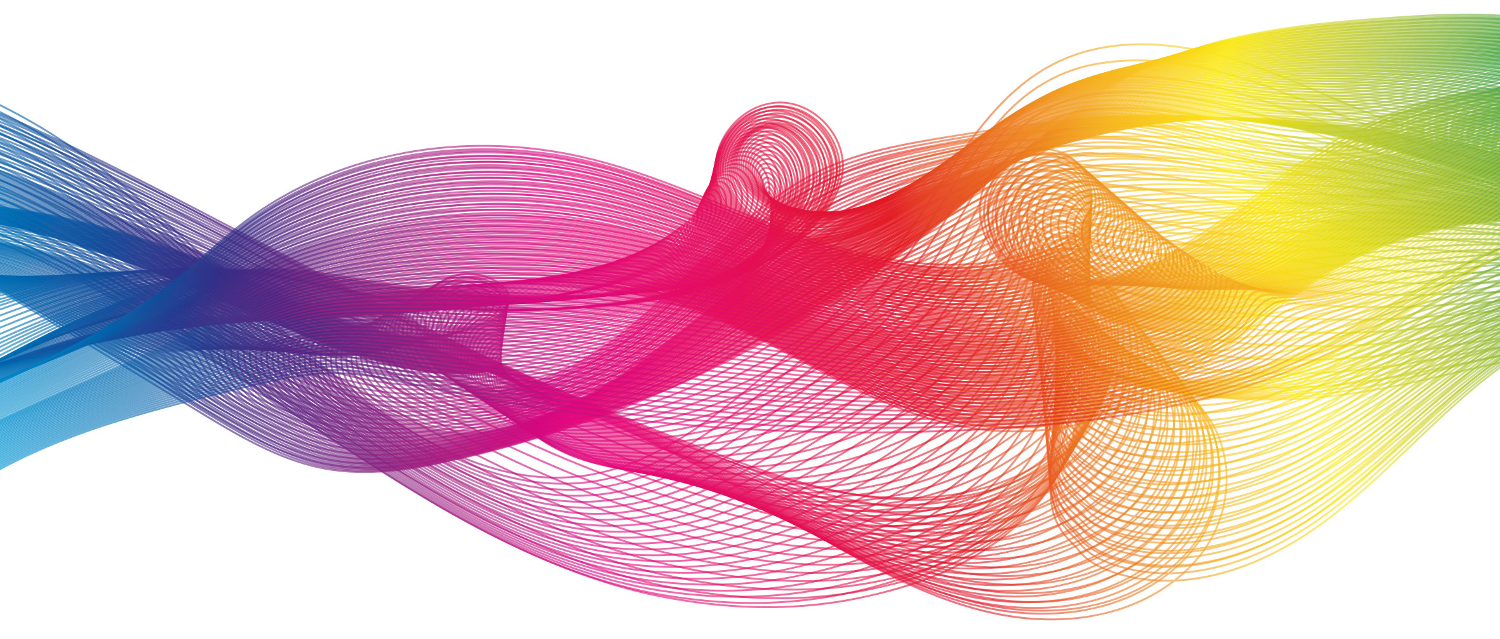Dr. Sigrid Kannengießer and Dr. Sebastian Kubitschko (both ZeMKI, U Bremen) edit new special issue of “Media and Communication”
The special issue focuses on the paradigm of media practice and the acting of certain actors in the media. The idea of this issue is the combination of empirical analyses and critical reflections of different forms of acting on media.
Next to the introductory article by Sebastian Kubitschko and Siegrid Kannengießer the special issue comprises contributions by Tilo Grenz, Paul Eisewicht, Wolfgang Reißmann, Moritz Stock, Svenja Kaiser, Vanessa Isenberg, Jörg-Uwe Nieland, Sarah Myers West, Johanna Möller and M. Bjørn von Rimscha, Michael S. Daubs, Jeffrey Wimmer and Hilde C. Stephansen.
The special issue can be accessed here.
Prof. Dr. Andreas Hepp (ZeMKI, U Bremen) and Wiebke Loosen (Hans-Bredow-Institute) present at the “Future of Journalism” conference in Cardiff, UK
Together they will give a talk on September 14 on “‘Makers’ of a future journalism? The role of ‘pioneer communities’ in transforming journalism”. The presentation will take place within the context of the panel “Algorithms and Data Journalism” from 15:30 to 17:00.
Further information on the research project can be accessed here.
Further information on the conference programme can be accessed here.
Prof. Dr. Andreas Hepp, PD Dr. Wiebke Loosen and Prof. Dr. Uwe Hasebrink co-edit special issue of the academic peer-reviewed journal “Medien & Kommunikationswissenschaft” on “Constructivism in Communication Studies” (together with Prof. em. Dr. Jo Reichertz). The special issue is only availabe in German language.
The special issue is comprises 13 articles which focus on theoretical approaches, new theoretical perspectives and current transformations.
Table of contents:
Andreas Hepp, Wiebke Loosen, Uwe Hasebrink, Jo Reichertz
Konstruktivismus in der Kommunikationswissenschaft. Über die Notwendigkeit einer (erneuten) Debatte
pages 181-206
Theoretische Zugänge
Siegfried J. Schmidt
Konstruktivistische Argumentationen als Reflexionsangebote für die Medien- und Kommunikationswissenschaften
pages 207-218
Ricarda Drüeke, Elisabeth Klaus, Martina Thiele
Eine Genealogie des Konstruktivismus in der kommunikationswissenschaftlichen Geschlechterforschung
pages 219-235
Gerhard Vowe
Theoretische Ansätze als kommunikative Konstruktionen. Optionen und Konsequenzen einer konstruktivistischen Erklärung der Wissenschaftsentwicklung
pages 236-251
Neue Theorieperspektiven
Jo Reichertz
Die Bedeutung des kommunikativen Handelns und der Medien im Kommunikativen Konstruktivismus
pages 252-274
Peter Gentzel
Praktisches Wissen und Materialität. Herausforderungen für kritisch- konstruktivistische Kommunikations- und Medienforschung
pages 275-293
Hektor Haarkötter
Konstruktivismus oder „Neuer Realismus“? Zwei konkurrierende Ansätze der Welterklärung und ihre Bedeutung für Journalismus und Journalismusforschung
pages 294-312
Hagen Schölzel
Die Komposition politischer Öffentlichkeiten. Konturen einer Kommunikations- und Mediensoziologie in den Arbeiten Bruno Latours und der Akteur-Netzwerk-Theorie
pages 313-329
Andreas Hepp, Uwe Hasebrink
Kommunikative Figurationen. Ein konzeptioneller Rahmen zur Erforschung kommunikativer Konstruktionsprozesse in Zeiten tiefgreifender Mediatisierung
pages 330-347
Aktuelle Transformationen
Wiebke Loosen, Armin Scholl
Journalismus und (algorithmische) Wirklichkeitskonstruktion. Epistemologische Beobachtungen
pages 348-366
Margreth Lünenborg
Von Mediengattungen zu kontingenten Hybriden: Konstruktivistische und performativitätstheoretische Perspektiven für die Journalistik
pages 367-384
Hendrik Michael
Ein mediengattungstheoretischer Modellentwurf zur Beobachtung der Entgrenzung journalistischer Formate am Beispiel von „fake news shows“
pages 385-405
Christoph Neuberger
Journalistische Objektivität. Vorschlag für einen pragmatischen Theorierahmen
pages 406-431
The digital version of the special issue is available here in the Nomos eLibrary.
Members of the “Communicative Figurations” research network present at the annual conference of the International Communication Association (ICA) in San Diego, California, USA
From May 25 to 29. Mai, the annual ICA conference takes place in San Diego. Several members of the “Communicative Figurations” research network present results and insights from their work to an internationalen academic audience.
Thursday, 25. Mai
all day
Preconference: Data and the Future of Critical Social Research
Organisation: Prof. Dr. Andreas Hepp (ZeMKI, University of Bremen) together with Prof. Dr. Nick Couldry (London School of Economics and Political Sciences)
08:30-08:45
Prof. Dr. Andreas Hepp (ZeMKI, University of Bremen) together with Prof. Dr. Nick Couldry (London School of Economics and Political Sciences): Deep mediatization and the challenges of data for critical social research
15:00-16:30
Prof. Dr. Christian Pentzold (ZeMKI, University of Bremen) together with Dr. Ulrike Klingler (University of Zürich): Reading the powerful rhetoric of ‘big data’ in political discourse
09:00-17:00
Preconference “The Visibility of Ordinary EU Citizens in the News Coverage on EU Governance”
Dr. Stefanie Walter (University of Hamburg): The Visibility of Ordinary EU Citizens in the News Coverage on EU Governance
09:00-16:30
Preconference “Preconference: Comments, Anyone? Multidisciplinary Approaches for Analyzing Online User Comments Across News and Other Content Formats“
PD Dr. Wiebke Loosen, Marlo Häring, Zijad Kurtanović, Lisa Merten, Julius Reimer, Lies van Roessel & Walid Maalej (HBI, University of Hamburg): Making Sense of User Comments. Identifying Journalists’ Requirements for a Software Framework
Freitag, 26. Mai
08:00-09:15
Prof. Dr. Michael Brüggemann (University of Hamburg): Postnormal Journalism: Climate Journalism and its Changing Contribution to an Unsustainable Debate
Samstag, 27. Mai
08:00-09:15
Dr. Stefanie Walter and Prof. Dr. Michael Brüggemann (University of Hamburg): Opportunity Makes Opinion Leaders: Analyzing the Role of First-Hand Information for Opinion Leadership in Social Media Networks
09:30-10:45
Prof. Dr. Cornelia Brantner (ZeMKI, University of Bremen) gemeinsam mit Prof. Dr. Katharina Lobinger (University of Lugano) and Dr. Miriam Stehling (University of Tübingen): Memes Against Sexism? A Multimethod Analysis of the Memes and Selfies in the Feminist Protest Hashtag #distractinglysexy and its Resonance in Mainstream News Media
Prof. Dr. Michael Brüggemann (University of Hamburg) gemeinsam mit Dr. Dorothee Arlt (University of Bern), Dr. Imke Hoppe und Fenja De Silva-Schmidt (both University of Hamburg): Climate Engagement in a Digital Age: Exploring the Drivers of Participation in Climate Discourse Online in the Context of COP21
12:30-13:45
Lisa Merten (HBI): Contextualised Network Maps: A Qualitative Approach Exploring the Role of Social Networking Sites in News-Related Media Repertoires
Sonntag, 28. Mai
09:30-10:45
Prof. Dr. Christian Pentzold (ZeMKI, University of Bremen): Editorial Surveillance and the Management of Visibility in Peer Production
Prof. Dr. Andreas Hepp und Ulrike Gerhard (ZeMKI, University of Bremen): Deep Mediatization, Digital Traces, and Self-Quantification: Contextualising “Pragmatic” and “Enthusiast” Self-Trackers
12:30-13:45
Prof. Dr. Christian Pentzold (ZeMKI, University of Bremen): Ethical Premises and Practical Judgment in Internet-Based Ethnography
Montag, 29. Mai
08:00-09:15
Julius Reimer und PD Dr. Wiebke Loosen (HBI): Mining Data, Refining Journalism? Data Journalism’s Development and Critical Potential
11:00-12:15
Dr. Sebastian Kubitschko und Dr. Sigrid Kannengießer (ZeMKI, University of Bremen): Making the Materiality of Media Tangible: Hacking and Repairing as Political Engagement
17:00-18:15
Prof. Dr. Christian Pentzold (ZeMKI, University of Bremen): Taking on the Practice Lens in Culturalistic Studies of Communication and Media
Prof. Dr. Michael Brüggemann (University of Hamburg) gemeinsam mit Josephine Schmitt (University of Cologne Fenja De Silva-Schmidt (University of Hamburg), Dr. Dorothee Arlt (University of Bern), Dr. Imke Hoppe (University of Hamburg): Let’s Talk About It! The Effects of Conversation on the Interplay of Trust in Climate-Related Information and Confidence in Collective Agency to Protect Climate
The full programme of the preconference can be accessed here.
The full programme of the annual conference can be accessed here.
Professor Dr. Andreas Hepp receives two awards at the annual conference of the German Communication Association (DGPuK)
For many years, communication and media research at the University of Bremen has distinguished itself by investigating the change to our society brought about by media, digitalization and currently their increasing drivenness by data. Now, this research has received two important accolades.
At this year’s annual conference of the German Communication Association (DGPuK), Andreas Hepp was awarded its Theory Prize and with it the first prize for a journal article in communication studies. A five-member jury honoured the book “The Mediated Construction of Reality” (2017, Polity Press) by Andreas Hepp and the British researcher Nick Couldry (London School of Economics and Political Sciences). The book innovatively and originally builds on existing theories and develops a basis for an understanding of a society that is shaped by media, digitalization and datafication. In their monograph, Couldry and Hepp discuss the question of the profound role digital media play in shaping and changing the social world, the consequences which can arise from that, but also what this means normatively for human coexistence.
Andreas Hepp received the prize for the best article in communication studies as part of a debate surrounding his article “Kommunikationswissenschaft in datengetriebenen Zeiten” (“Communication studies in data-driven times”) which was published in the academic journal “Publizistik” in mid-2016. This article provoked a debate in the research community in which four other scholars participated who were also distinguished. In his article, Hepp argues in favour of an extension of the subject area of communication and media studies and for a much stronger application of digital methods, for instance, to research data traces that people leave behind online. Hepp pleads for an extension of the disciplinary perspective also towards the datafication of communication, i.e. its increasing digitalization and automatization. The award winning article triggered an intensive debate on the self-understanding of the discipline, which led to a special window on the future of communication studies at this year’s annual DGPuK conference.
Both award winning publications base significantly on joint theoretical and empirical research in the “Communicative Figurations” research network of the Universities of Bremen and Hamburg and Bremen’s Creative Research Unit of the same name which was supported by the University of Bremen’s institutional strategy “Ambitious and Agile” funded within the frame of the Excellence Initiative of the German Federal and State Governments from 2013 to 2016.
Prof. Dr. Andreas Hepp is speaker of the Centre for Media, Communication and Information Research (ZeMKI) and led the Creative Research Unit “Communicative Figurations” (2013-2016). The ZeMKI bundles research activities at the University of Bremen in the area of media and communicative change, encompassing a broad range of cultural, social, organisational and technological context fields. The research institute is committed to interdisciplinary cooperation, integrating researchers from the areas of media and communication studies, information management, media education, film studies, religious studies, and history.
Couldry, Nick/Hepp, Andreas (2017): The Mediated Construction of Reality. Cambridge: Polity. ISBN 978-0-7456-8131-3 (Paperback), 290 pages, € 23,60
Hepp, Andreas (2016): Kommunikationswissenschaft in datengetriebenen Zeiten. In: Publizistik, 61(3), pp. 225-246, http://link.springer.com/article/10.1007/s11616-016-0263-y (Open Access).
Press contact:
University of Bremen
ZeMKI, Centre for Media, Communication and Information Research
Dr. Leif Kramp
Linzer Str. 4
D-28359 Bremen
Germany
Phone: +49-421-218-67652
Fax: +49-421-218-98-67652
email: kramp@uni-bremen.de

